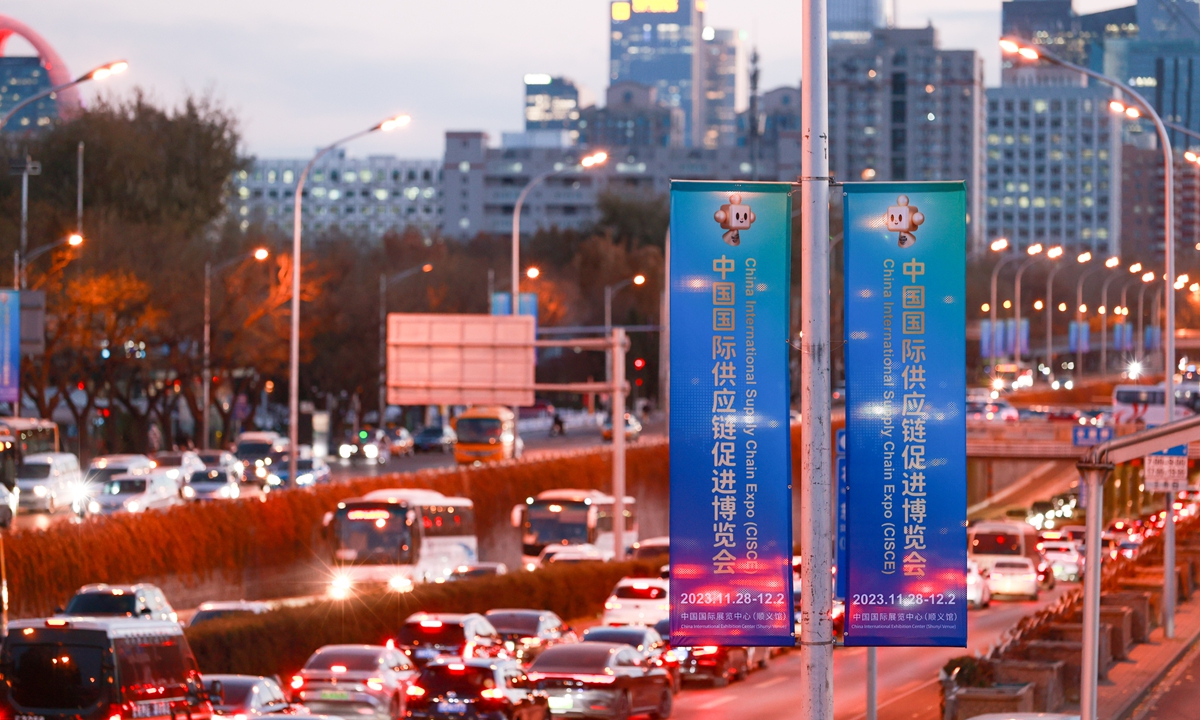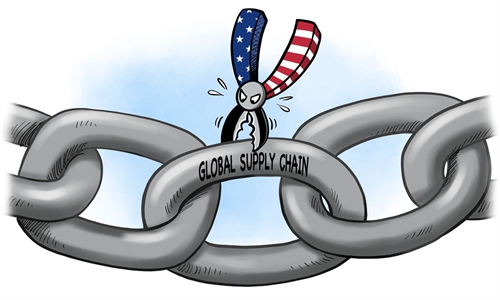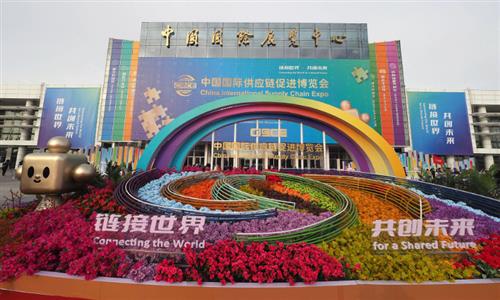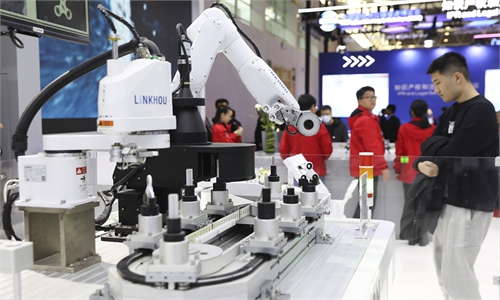Chinese firms showcase independent innovation, global cooperation at first China International Supply Chain Expo
Tech self-reliance key, but ‘decoupling’ impossible

The banners of the China International Supply Chain Expo (CISCE) are displayed alongside the main roads in Beijing on November 27, 2023. The first CISCE will be held from November 28 to December 2, 2023 in Beijing. Photo: cnsphoto
At the ongoing China International Supply Chain Expo (CISCE) in Beijing, a major platform for strengthening cooperation on safeguarding global supply chains, Chinese firms showcased their independent technological achievements as well as their efforts in cooperating with partners from around the world to achieve win-win outcomes.
Amid a complex international environment marked by attempts by some in the West to hinder global industry and supply chains through "decoupling" or "de-risking," it is crucial for Chinese companies to both pursue self-reliance on core technologies and further integrate into global industry and supply chains, business leaders and experts said on Wednesday.
Ningbo Shanshan Co has become a major player in the research and development (R&D), production and sales of lithium battery materials, including cathode materials, anode materials and electrolytes, after 20 years in the business. The company maintains first place in the world in shipments of artificial graphite, an important raw material for lithium batteries.
While the company has achieved great independent innovation in core technologies for lithium battery materials, which are crucial for the new energy vehicle (NEV) sector, it has also been relentlessly pursuing cooperation with global partners, according to Zheng Ju, chairman of Ningbo Shanshan Co.
Zheng told the Global Times on the sidelines of the CISCE that the company has become an important partner of CATL, LG Chemical and BYD, participating deeply in cooperation in global NEV industry and supply chains.
"China has always adhered to the globalization and openness of its industry chains, and is committed to maintaining the stability and smooth flow of global industry chains," said Zheng.
Shanshan also follows such a globalized and open path. The company built a lithium-ion battery negative electrode material integration base project in Finland, with an annual output of 100,000 tons of materials.
"This is Shanshan's first overseas project, and we are communicating with local enterprises to localize procurement of raw materials. We are also focusing on cooperation with industry chains in Finland and Europe," said Zheng. "The establishment of a production base in Europe by Shanshan is the best practice for global cooperation in the new energy battery industry chain."
The convening of the CISCE, the world's first state-level supply chain-themed expo, in itself demonstrates China's commitment to safeguard and build resilient, efficient and dynamic global industry and supply chains. The event has brought together more than 500 Chinese and foreign companies to showcase their products and explore opportunities for cooperation.
"Certainly, China plays a leading role in the global industry and supply chains," Bai Ming, researcher of the Chinese Academy of International Trade and Economic Cooperation, told the Global Times, noting that while it stresses self-reliance in core technologies, China is also actively boosting global cooperation on industry and supply chains.
In an attempt to contain China's development, some Western politicians are calling for "decoupling" or "de-risking" efforts, and they have also imposed arbitrary restrictions on sales of certain advanced technological components in key sectors to China.
In the field of biomedicine, for example, China for years relied on imports of many medicines and vaccines. But in recent years, Chinese firms have stepped up R&D efforts and made great strides in producing domestic products.
"We were forced to make breakthroughs and China has achieved some level of domestic substitution in the medical and vaccine supply chains. Sinopharm is able to stand on our own feet in the entire supply chain - from R&D to production to supply," Zhu Jingjin, president of the Biological Products Division at Sinopharm, told the Global Times on the sidelines of the CISCE.
In particular, during the COVID-19 pandemic, Sinopharm quickly developed its COVID-19 vaccine and supplied more than 3 billion doses to people in China and about 120 countries and regions. "Relying on China's complete industry and supply chains, we quickly produced our own COVID-19 vaccine, the first outside of Western vaccine companies," said Zhu.
Yet, focusing on independent innovation and breakthroughs does not mean that Chinese companies will remain behind closed doors.
Zhu noted that in today's deepening globalization, it is impossible for any field to work behind closed doors, and the CISCE has brought together many participants in the health industry supply chain at home and abroad, creating good opportunities for international cooperation.
Bai said that fostering global cooperation and maintaining the stability of international industry and supply chains also means that all countries and regions around the world can actually benefit from them.




